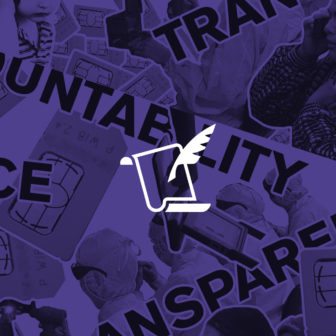
Peter Micek, Esq.
General Counsel
Peter Micek is General Counsel and UN Policy Manager at Access Now, based in New York City. Peter Micek leads the Legal arm, managing risk to global programming and operations, closely with the organization’s Digital Security Helpline, Grants, and RightsCon teams. The Legal arm engages in strategic litigation and bolsters legal support for civic space online and civil society actors globally. As UN Policy Manager, Peter advances international norms and law on digital rights, including on privacy and spyware, censorship and internet shutdowns, and digital identity programs. Peter is also Lecturer at the Columbia University School of International and Public Affairs (SIPA) on internet governance and public policy in the digital age, and sits on the Advisory Board of the Univ. of Oklahoma College of Law’s Center for International Business and Human Rights, and formerly the World Economic Forum’s Global Future Council on the Future of Cybersecurity. A lawyer by training, Peter completed a JD cum laude at the University of San Francisco School of Law, and in 2010 published “A Genealogy of Home Visits,” critiquing surveillance of at-risk communities. As a law student, Peter defended independent journalists and engaged in Freedom of Information litigation at First Amendment Project. Peter studied political science and journalism at Northwestern University in Evanston, IL. He is licensed by the state bars of California and New York, and has no cats.



